AI and the Future of Work – The End of Human Jobs?
- March 30, 2025
- 0
Hey science fiction and artificial intelligence fans, let’s address a topic that already leaves many people worried, others excited. We’ve all heard the rumors. “AI is taking over!”
Hey science fiction and artificial intelligence fans, let’s address a topic that already leaves many people worried, others excited. We’ve all heard the rumors. “AI is taking over!”
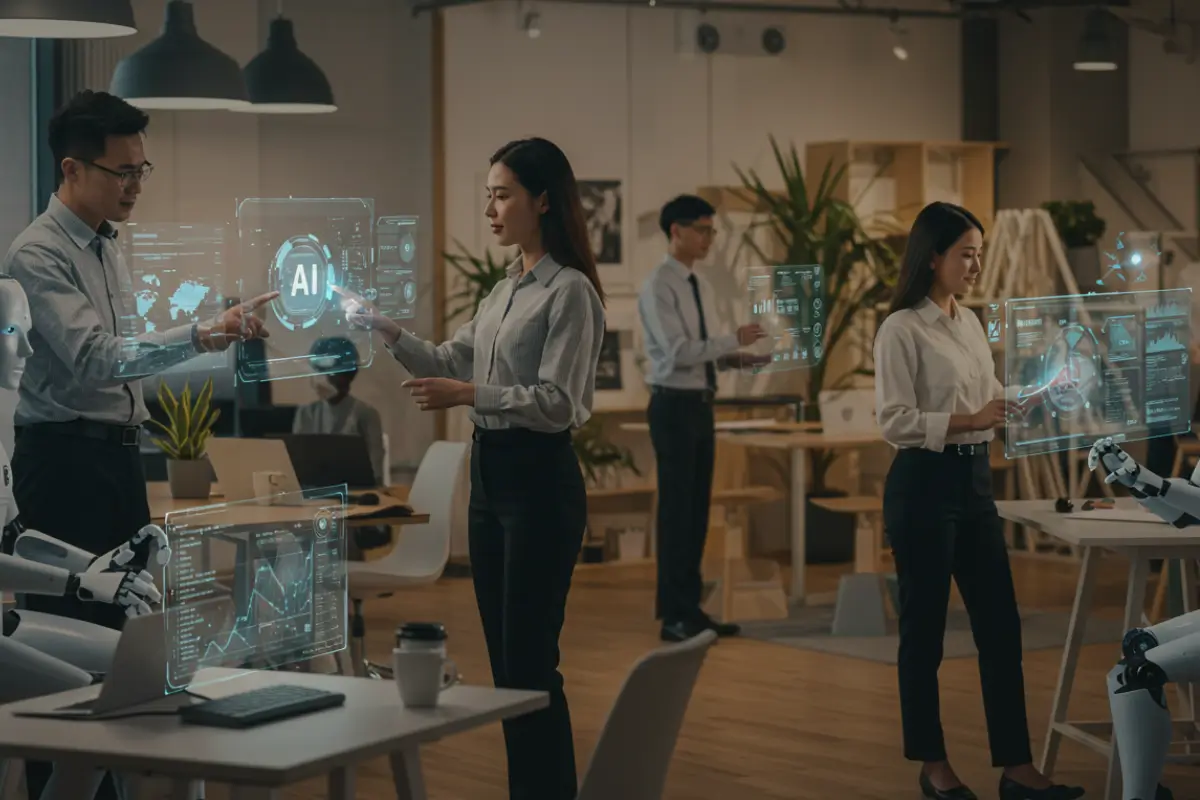
Hey science fiction and artificial intelligence fans, let’s address a topic that already leaves many people worried, others excited.
We’ve all heard the rumors. “AI is taking over!” “Robots will replace us all!” But is that really true? As someone deeply invested in the future of technology, I’ve spent countless hours researching the impact of artificial intelligence on the job market. And let me tell you—it’s complicated.
AI is undoubtedly changing the way we work, but does that mean human jobs are doomed? Not necessarily. Let’s break it down.
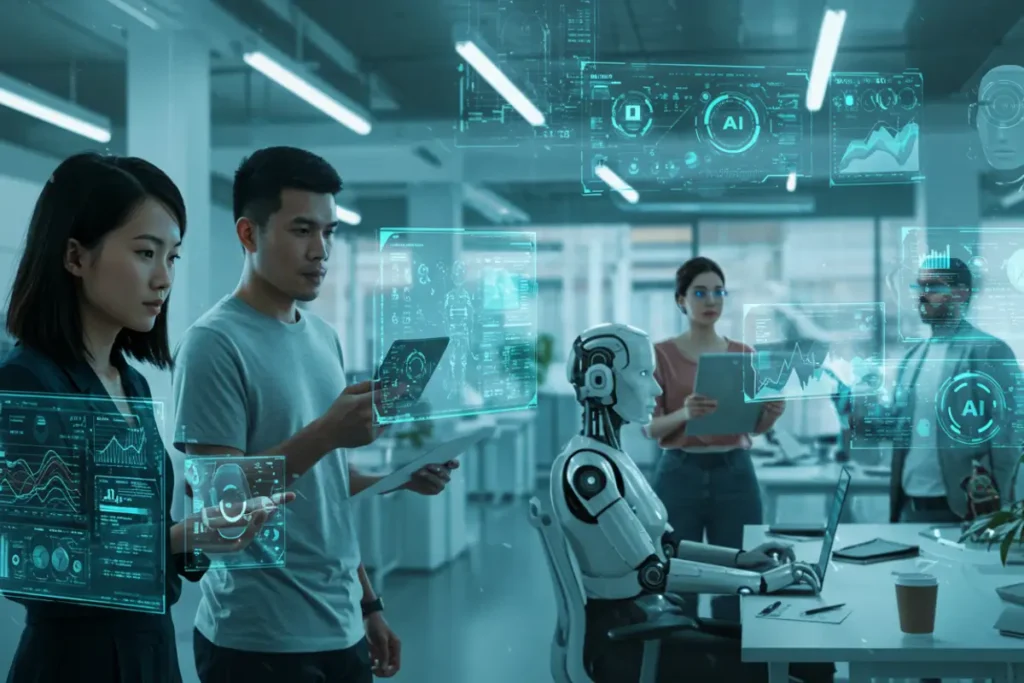
Artificial Intelligence has come a long way from simple automation to advanced machine learning models capable of performing complex tasks.
The transition began with factory robots replacing manual labor and has now expanded to AI-powered software capable of writing, designing, analyzing data, and even making decisions.
Companies like Google and OpenAI are pushing the boundaries of AI, with models like ChatGPT-4 and Gemini 1.5 redefining what machines can do.
However, this raises a critical question: if AI can perform high-skill tasks, what will be left for us? Well, the answer isn’t as bleak as it sounds.
AI is primarily being used to augment human productivity rather than outright replace workers. Take AI in journalism, for example.
AI tools can draft articles, but human journalists still play a crucial role in editing, providing creative insights, and ensuring accuracy.
Similarly, AI in programming helps automate repetitive coding tasks, but developers are still needed to guide and optimize AI-generated code.
For example, in the article AI in the Workplace: How AI Tools Are Changing Productivity, we explored how AI is improving workflow efficiency rather than eliminating jobs outright.
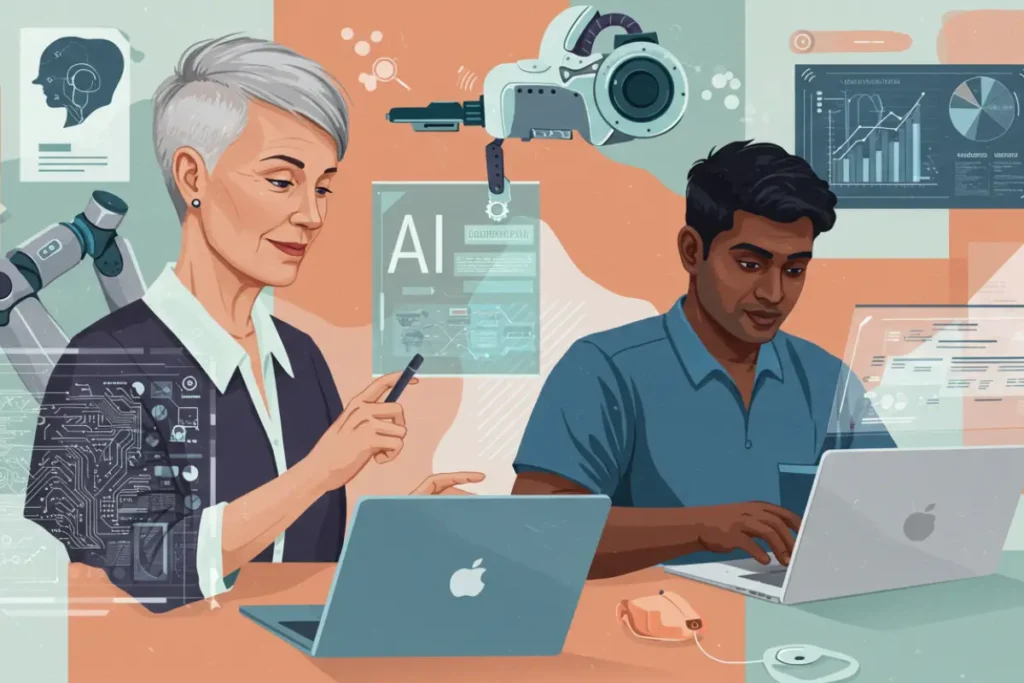
AI is disrupting multiple industries at different levels:
While AI is impressive, there are some areas where human capabilities still reign supreme.
AI can generate images, compose music, and even write books (check out Can AI Write a Book Better Than Humans?).
However, true creativity stems from human experiences, emotions, and cultural understanding. Artists, musicians, and writers bring something AI can’t replicate: soul.
Careers in therapy, social work, and education rely heavily on empathy and human connection. AI can assist, but it lacks genuine emotional understanding, making human professionals irreplaceable in these fields.
Plumbers, electricians, and mechanics require hands-on expertise and adaptability. AI-controlled robots might assist, but real-world problem-solving skills remain uniquely human.
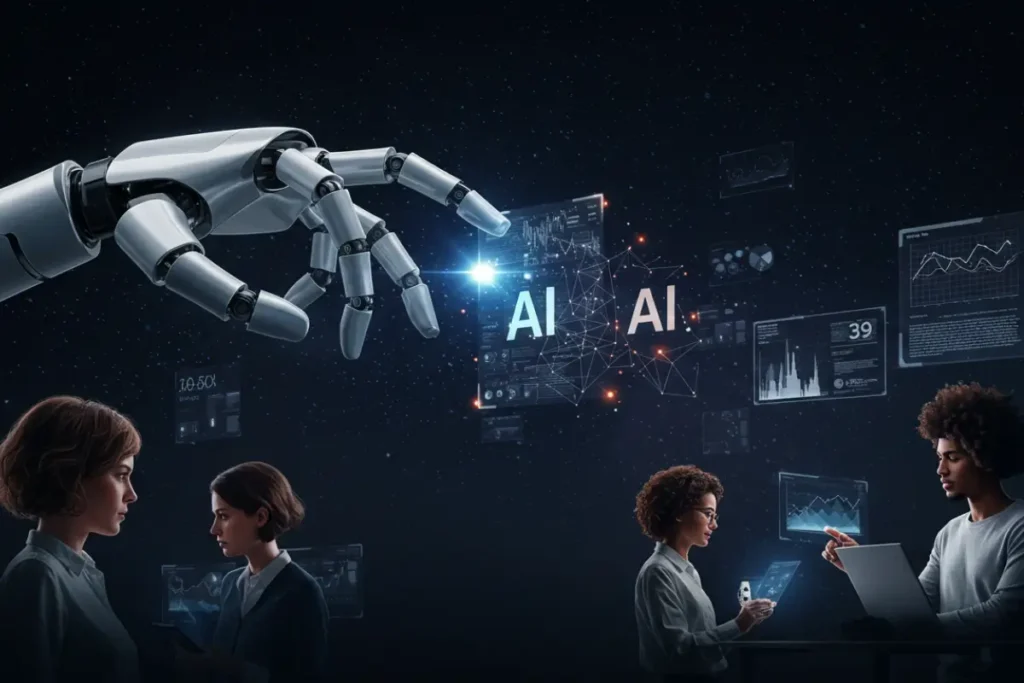
Historically, every major technological shift has resulted in new job opportunities. AI is no different. The rise of AI has already created high-demand roles such as:
In fact, a report from the World Economic Forum predicts that AI will generate millions of new jobs in the next decade.
The challenge? Ensuring workers are equipped with the right skills to transition into these roles.
To future-proof your career, consider focusing on: ✅ Upskilling in AI & Machine Learning ✅ Developing Strong Critical Thinking & Problem-Solving Skills ✅ Emphasizing Creativity & Innovation ✅ Building Expertise in Emotional Intelligence & Human-Centric Roles
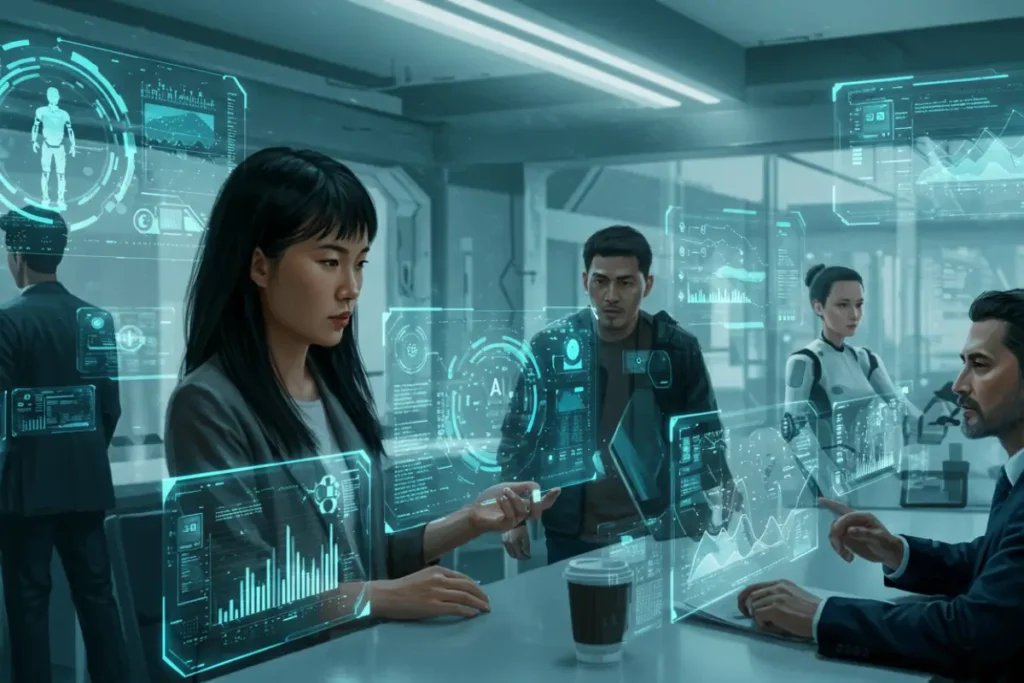
AI will change the job market, but it’s unlikely to render humans obsolete. Instead of fearing AI, we should focus on adapting to it.
By embracing continuous learning and leveraging the strengths that make us uniquely human, we can thrive in an AI-powered world.
I think this is crazy, but if you stop to think about it, with the money that the whole world has, maybe one day, who knows, life will change drastically.
What do you think? Will AI take over, or will we learn to work alongside it? Drop a comment below and let’s discuss! 👇
▶ Will AI replace all jobs?
Not entirely. AI will automate repetitive tasks, but human creativity, emotional intelligence, and adaptability will always be in demand.
▶ What careers are safe from AI automation?
Creative jobs, social work, skilled trades, and roles requiring emotional intelligence are among the safest.
▶ How can I prepare for an AI-driven job market?
Focus on upskilling, staying adaptable, and leveraging uniquely human abilities such as creativity and empathy.
▶ Is AI a threat to humanity?
AI poses challenges, but it also offers immense potential. The key is responsible development and ethical oversight.
🔗 Related Articles:
👉 If you found this article insightful, don’t forget to share it! 🚀